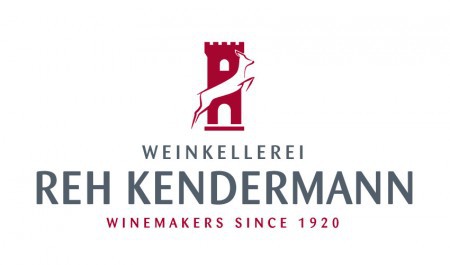
Provence: crafting the world's best rosés
A look at the unrivalled rosés of Provence and the appellations they hail from
Courtesy of its unique combination of terroir, heritage and expertise, Provence has established a reputation for crafting the finest rosé wines in the world. Though the signature dry, pale, elegant style has found global fame in recent times, the region’s vinous history can be traced back thousands of years, the mix of climate, soils and experience delivering unrivalled rosé wines with an unmistakable flavour of the Mediterranean. Here, Vins de Provence ambassador Ray O’Connor MW, Maison Mirabeau co-founder Jeany Cronk, Domaine de la Fouquette’s Jean-Pierre Daziano and Aurélie Bertin of Château Sainte Roseline explain what makes the three Vins de Provence appellations so special.


Left: Vins de Provence ambassador, Ray O'Connor MW Right: Jeany Cronk of Maison Mirabeau and Aurélie Bertin of Château Sainte Roseline
Provence rosé is synonymous with conviviality and pleasure but, like all the world’s finest wines, it is also a reflection of a particular terroir?
Ray: There is a breadth of terroir across the region. Climatically, it benefits from 2,700-2,900 hours of sunlight every year for ripening, but with exposure to the sea that tempers the temperature year round. Most of the vineyards are a patchwork of small parcels, mostly on very poor soils, with differing orientation, often surrounded by woodland which hosts a wide array of species that contribute to biodiversity. This, coupled with the savoir faire of those working the land, is what makes Provence rosé so special.
Aurélie: Thanks to an exceptional terroir, an ideal climate, precise viticultural practices and deeply rooted tradition, Provence rosé is much more than just a wine for pleasure: it reflects a unique place and world-renowned expertise, making it the absolute benchmark for rosé.
Each Vins de Provence appellation – Côtes de Provence, Coteaux Varois en Provence and Coteaux d’Aix-en-Provence – has its own unique characteristics. Tell us more about how that influences the wines.
Jeany: Each appellation is interesting, even if we recognise an overarching signature of pale, aromatic and dry wines throughout.
Ray: Côtes de Provence is the largest of the three regions, covering 20,358ha, so naturally you get a breadth of styles, with fresher, more vibrant wines coming from inland and wines with a bit more texture and body closer to the coast. Coteaux Varois en Provence is located at a higher altitude than the other two, with more rainfall and the altitude lending itself to wines with a little more freshness. Coteaux d’Aix-en-Provence benefits from a greater proportion of limestone soils and sits in a fortuitous location, the sea breeze channelled into the region and distributed around its lower-altitude sites, resulting in the wines having a crispness and vibrancy.
Jean-Pierre: Provence is a mosaic of terroirs, which gives each appellation its own distinctive character, with one common thread: fine, elegant, well-balanced wines.
Provence has established itself as the gold standard for rosé, but its recent success is actually rooted in a long history of expertise?
Jean-Pierre: Provence has made rosé for 2,600 years and it’s in the DNA of Provençal winegrowers. Everything is designed to produce great wines, from plot selection and grape varieties to cellar investments.
Ray: Rosé has been made in the region for centuries, but around 25 years ago the Centre du Rosé (for research and development) began a project to study the key parameters for quality rosé: colour, aromatics, palate intensity and freshness. It engaged growers throughout the region to implement improvements, with the best varieties on the most suitable sites, night harvesting, direct pressing and stabulation (a process to enhance aromatic extraction, using temperature control). So, the success Provence now enjoys was hard earned, through research and collaboration.
Rosé is famously a complicated wine to produce, requiring attention to detail coupled with the latest technology.
Jean-Pierre: Rosé is a delicate wine, but Provençal winemakers have succeeded in unlocking its secrets, thanks in particular to the work of the Centre du Rosé. The choice of blends, temperature control and oxygen management are all areas that no longer hold any mystery for winemakers.
Aurélie: Rosé is often perceived as light and easy to drink, but in reality its production is one of the most complex and demanding in viticulture, requiring precision, know-how and the use of the most advanced technologies to guarantee its freshness, balance and aromatic expression.
Jeany: Our flavours are delicate and elegant, not rich and juicy. It’s very easy for heat and oxygen, or too much skin contact, to get in the way of this lighter style and you want the fruit expression to be as clean as a whistle. It requires a meticulous approach in the vineyard, understanding the perfect moment for harvest, a delicate hand during pressing and constant surveillance during fermentation.
Vins de Provence is leading the way in sustainability and organic conversion. Tell us more about these initiatives.
Ray: Sustainable viticulture is deep-rooted in Provence’s approach: today 61% of the vineyards are organic and/or HVE (16,648 ha) and this figure is increasing each year.
Aurélie: Thanks to a favourable climate, careful management of natural resources, and a determination to innovate, this is one of the most committed wine regions in terms of organic conversion and eco-responsible practices.
Jeany: I am a huge believer in Provence’s future as one of the most nature-positive wine regions in France and in Europe. A lot of vineyards and growers are taking their sites beyond organic, towards regenerative and biodynamic practices, focusing on biodiversity, soil health and carbon sequestration.





